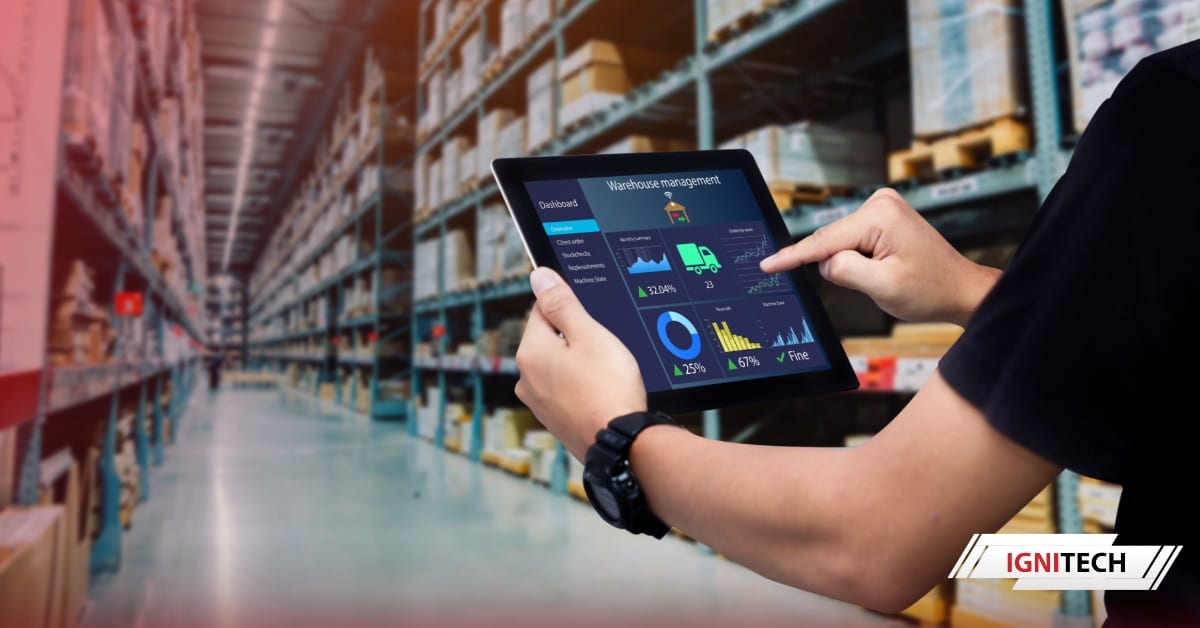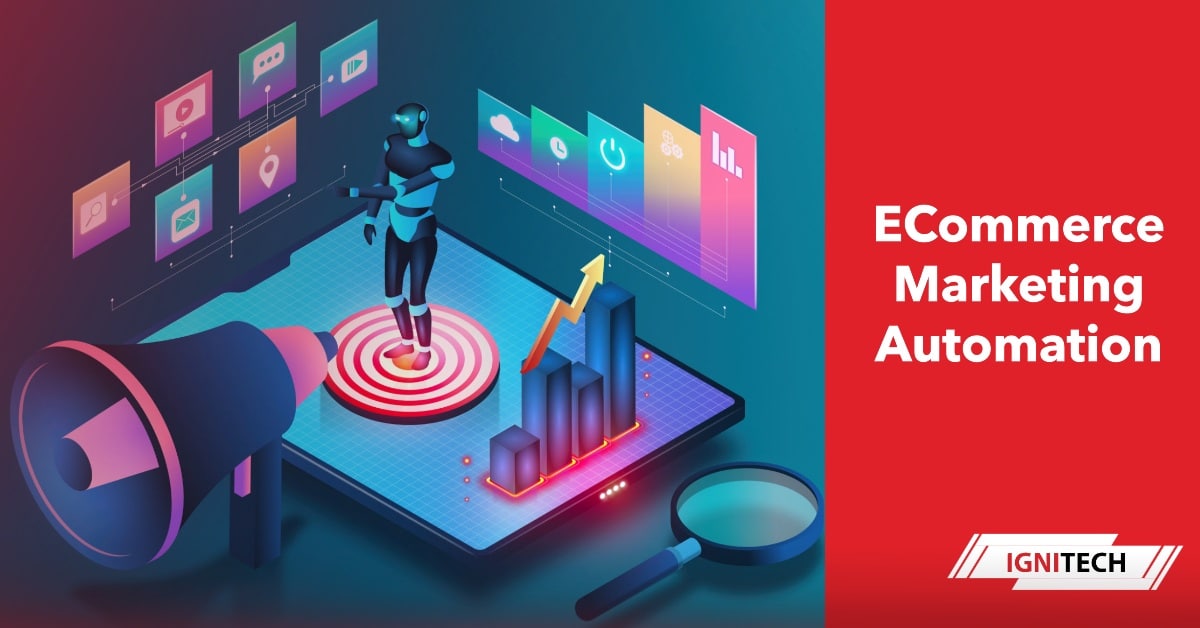The online retail sector has witnessed exponential growth, with businesses constantly seeking innovative ways to streamline operations and boost sales. At the forefront of this revolution stands eCommerce marketing automation, a game-changing approach that empowers businesses to optimize their marketing efforts, enhance customer experiences, and drive remarkable results.
This comprehensive guide delves into the intricacies of eCommerce marketing automation, exploring its fundamental concepts, key strategies, and transformative impact on online businesses. Whether you’re a seasoned eCommerce professional or just starting your online venture, this article will equip you with the knowledge and insights necessary to harness the full potential of marketing automation in the eCommerce sphere.
Understanding eCommerce Marketing Automation

eCommerce marketing automation refers to the use of software and technology to automate repetitive marketing tasks and workflows in online retail. This approach enables businesses to deliver personalized, timely, and relevant messages to customers across various channels, fostering engagement and driving conversions.
Key Components of eCommerce Marketing Automation
- Customer Segmentation
- Email Marketing
- Social Media Management
- Personalization
- Analytics and Reporting
- Lead Scoring and Nurturing
By integrating these components, businesses can create a cohesive and efficient marketing ecosystem that responds dynamically to customer behaviors and preferences.
The Power of eCommerce Marketing Automation
eCommerce marketing automation offers a myriad of advantages for online retailers. Let’s explore some of the primary benefits of marketing automation in the eCommerce context:
Enhanced Efficiency: Automation streamlines marketing processes, reducing manual effort and freeing up resources for strategic initiatives.
Improved Customer Experience: Personalized communications and timely interactions contribute to a more satisfying customer journey.
Increased Conversions: Targeted campaigns and optimized customer touchpoints lead to higher conversion rates and improved ROI.
Data-Driven Decision Making: Robust analytics provide valuable insights, enabling informed strategy refinement and optimization.
Scalability: Automation allows businesses to manage and nurture larger customer bases without proportionally increasing manpower.
Essential eCommerce Marketing Automation Strategies
To leverage the full potential of eCommerce marketing automation, consider implementing these proven strategies:
1. Abandoned Cart Recovery
Abandoned carts represent a significant loss of potential revenue for eCommerce businesses. Implementing an automated abandoned cart recovery system can help recapture lost sales.
| Strategy | Description | Potential Impact |
|---|---|---|
| Timely Reminders | Send automated emails to remind customers of items left in their cart | Up to 10% recovery rate |
| Personalized Incentives | Offer targeted discounts or free shipping to encourage completion | Increased conversion rate |
| Multi-Channel Approach | Use email, SMS, and retargeting ads for comprehensive outreach | Improved customer engagement |
2. Personalized Product Recommendations
Utilize customer data and browsing behavior to provide tailored product suggestions, enhancing the shopping experience and increasing average order value.
3. Automated Email Campaigns
Develop a series of automated email campaigns to nurture leads, welcome new customers, and re-engage dormant users. Marketing automation best practices dictate that these campaigns should be personalized and triggered based on specific customer actions or milestones.
4. Dynamic Pricing and Promotions
Implement automated systems that adjust pricing and promotions based on factors such as demand, inventory levels, and competitor pricing.
5. Customer Lifecycle Management
Create automated workflows that cater to customers at different stages of their lifecycle, from acquisition to retention and loyalty.
Implementing eCommerce Marketing Automation

Successful marketing automation implementation requires careful planning and execution. Follow these steps to ensure a smooth transition:
Assess Your Current State: Evaluate your existing marketing processes and identify areas that could benefit from automation.
Define Clear Objectives: Establish specific, measurable goals for your automation efforts.
Choose the Right Tools: Select marketing automation platforms that align with your business needs and integrate well with your existing systems.
Develop a Data Strategy: Ensure you have clean, accurate data to fuel your automation efforts.
Create Compelling Content: Develop high-quality, relevant content to support your automated campaigns.
Test and Optimize: Continuously monitor performance and refine your automation strategies for optimal results.
Measuring Success: Marketing Automation ROI

To gauge the effectiveness of your eCommerce marketing automation efforts, focus on these key performance indicators:
- Conversion Rate
- Customer Lifetime Value
- Average Order Value
- Customer Acquisition Cost
- Email Engagement Metrics
- Return on Investment (ROI)
Regularly analyze these metrics to identify areas for improvement and demonstrate the value of your marketing automation ROI.
Advanced eCommerce Marketing Automation Techniques
As you become more proficient with basic automation strategies, consider exploring these advanced techniques:
1. Predictive Analytics
Leverage machine learning algorithms to forecast customer behavior and tailor your marketing efforts accordingly.
2. AI-Powered Chatbots
Implement intelligent chatbots to provide 24/7 customer support, answer queries, and guide customers through the purchase process.
3. Omnichannel Personalization
Create seamless, personalized experiences across all customer touchpoints, from email to social media to your eCommerce website.
4. Behavioral Targeting
Use customer behavior data to trigger highly targeted campaigns based on specific actions or inactions.
Overcoming Common Challenges in eCommerce Marketing Automation
While the benefits of automation are clear, businesses may encounter obstacles during implementation. Here are some common challenges and solutions:
Data Quality Issues: Implement robust data cleansing and management processes to ensure accurate, actionable data.
Integration Complexities: Work with marketing automation consulting experts to seamlessly integrate automation tools with your existing tech stack.
Content Creation Bottlenecks: Develop a content creation strategy that aligns with your automation needs, potentially outsourcing to a marketing automation agency if necessary.
Skills Gap: Invest in training for your team or consider partnering with automation specialists to bridge any knowledge gaps.
The Future of eCommerce Marketing Automation
As technology continues to advance, the landscape of eCommerce marketing automation is set to evolve. Stay ahead of the curve by keeping an eye on these emerging trends:
Voice Commerce Integration: Adapt automation strategies to accommodate voice-activated shopping experiences.
Augmented Reality (AR) Marketing: Incorporate AR elements into automated marketing campaigns for immersive product experiences.
Blockchain for Customer Loyalty: Explore blockchain-based loyalty programs for enhanced security and transparency.
Hyper-Personalization: Utilize advanced AI and machine learning to deliver ultra-personalized experiences at scale.
Ecommerce Marketing Automation Tools:
At the heart of successful eCommerce marketing automation lies powerful software tools designed to streamline processes, personalize customer interactions, and drive growth. With a vast array of options available, choosing the right eCommerce marketing automation platform is crucial to maximizing your return on investment. In this section, we’ll explore some of the leading tools in the market and their key features.
1. HubSpot Marketing Hub
HubSpot’s Marketing Hub is a comprehensive solution that offers a robust suite of automation capabilities. From email marketing and lead nurturing to social media management and analytics, HubSpot empowers businesses to craft seamless customer experiences across multiple channels. Its user-friendly interface, extensive integrations, and scalability make it a popular choice for eCommerce businesses of all sizes.
2. Klaviyo
Designed specifically for eCommerce, Klaviyo is a powerful platform that excels in email and SMS marketing automation. Its advanced segmentation and personalization features allow businesses to deliver highly targeted campaigns based on customer behavior, purchase history, and preferences. Klaviyo’s integration with popular eCommerce platforms and robust analytics capabilities make it a valuable asset for data-driven marketers.
3. Omnisend
Omnisend is a versatile eCommerce marketing automation tool that combines email, SMS, push notifications, and more into a unified platform. Its intuitive campaign builder, pre-built automation workflows, and advanced segmentation tools enable businesses to create highly personalized customer journeys. Omnisend’s seamless integration with major eCommerce platforms and robust reporting features make it a compelling choice for online retailers.
4. ActiveCampaign
ActiveCampaign is a comprehensive marketing automation solution that caters to eCommerce businesses of all sizes. Its robust email marketing capabilities, lead scoring, and sales automation features enable businesses to nurture leads and drive conversions effectively. ActiveCampaign’s integration with popular eCommerce platforms, CRMs, and analytics tools make it a versatile choice for streamlining marketing operations.
5. Drip
Drip is a specialized eCommerce marketing automation platform that focuses on delivering personalized customer experiences. Its advanced segmentation capabilities, behavior-based automation workflows, and robust analytics tools enable businesses to create highly targeted campaigns and optimize their marketing efforts. Drip’s integration with popular eCommerce platforms and its user-friendly interface make it an attractive option for online retailers seeking a tailored solution.
These are just a few examples of the many eCommerce marketing automation tools available in the market. When selecting a platform, consider factors such as features, scalability, integrations, ease of use, and pricing to ensure it aligns with your business requirements and goals. Additionally, evaluate the platform’s customer support, documentation, and community resources to ensure a seamless implementation and ongoing success.
Conclusion
eCommerce marketing automation represents a powerful tool for online retailers seeking to maximize efficiency, enhance customer experiences, and drive sustainable growth. By understanding the core principles, implementing proven strategies, and staying abreast of emerging trends, businesses can harness the full potential of automation to achieve remarkable success in the competitive world of eCommerce.
Remember, the key to effective eCommerce marketing automation lies in continuous learning, testing, and optimization. As you embark on your automation journey, remain flexible and open to refining your approach based on data-driven insights and evolving customer needs.
Embracing eCommerce marketing automation is not just about keeping pace with industry trends; it’s about setting new standards for customer engagement and business performance. By leveraging the power of automation, you can create a more efficient, responsive, and customer-centric eCommerce operation that stands out in the crowded online marketplace.
Take the first step towards transforming your eCommerce business today. Explore the possibilities of marketing automation, and unlock a new era of growth and success for your online retail venture.
FAQs
Common use cases include cart abandonment campaigns, welcome email series, post-purchase follow-ups, customer winback campaigns, product replenishment reminders, and personalized product recommendations.
Leverage customer data to dynamically populate content with personalized details like name, location, purchase history, and preferences. Use a conversational tone and provide opportunities for two-way communication.
The time to see results can vary, but most businesses experience an uplift in engagement and conversions within the first few months. Consistent optimization and testing are key to maximizing the impact over time.
Absolutely. Automation enables timely and personalized communications, tailored promotions, and seamless post-purchase experiences, which can foster customer loyalty and encourage repeat business.
Follow best practices like obtaining explicit consent, providing clear opt-out options, and ensuring data security measures are in place. Stay updated on relevant privacy regulations like GDPR and CCPA.
Key skills include data analysis, campaign planning, copy and creative development, and technical proficiency with the chosen platform. Dedicated resources or agency support may be needed for complex implementations.
Many platforms allow integration with social media, search engines, SMS, push notifications, and more. This enables coordinated, omnichannel campaigns for a consistent customer experience.
Yes, most platforms offer A/B testing capabilities that allow you to test different versions of emails, landing pages, and messaging to optimize for better performance.
Emerging trends include AI-powered personalization, conversational marketing through chatbots, advanced segmentation using machine learning, and integration with voice assistants and IoT devices.
Key best practices include: Defining clear goals, maintaining accurate customer data, adhering to privacy regulations, using conversational tone, continuous testing and optimization, balancing automation with human touch, prioritizing high-impact automations, ensuring system integrations, and comprehensive team training. Following these practices maximizes automation effectiveness, delivers exceptional experiences, builds loyalty, and drives growth.
 Anas is our go-to copywriter with a knack for crafting persuasive and high-converting eCommerce landing pages. His passion for words and understanding of consumer psychology helps turn visitors into loyal customers. When he's not refining his copy, Anas enjoys exploring the latest digital marketing trends and experimenting with new writing techniques. His blend of creativity and strategic thinking makes him an indispensable part of our energetic team.
Anas is our go-to copywriter with a knack for crafting persuasive and high-converting eCommerce landing pages. His passion for words and understanding of consumer psychology helps turn visitors into loyal customers. When he's not refining his copy, Anas enjoys exploring the latest digital marketing trends and experimenting with new writing techniques. His blend of creativity and strategic thinking makes him an indispensable part of our energetic team.












